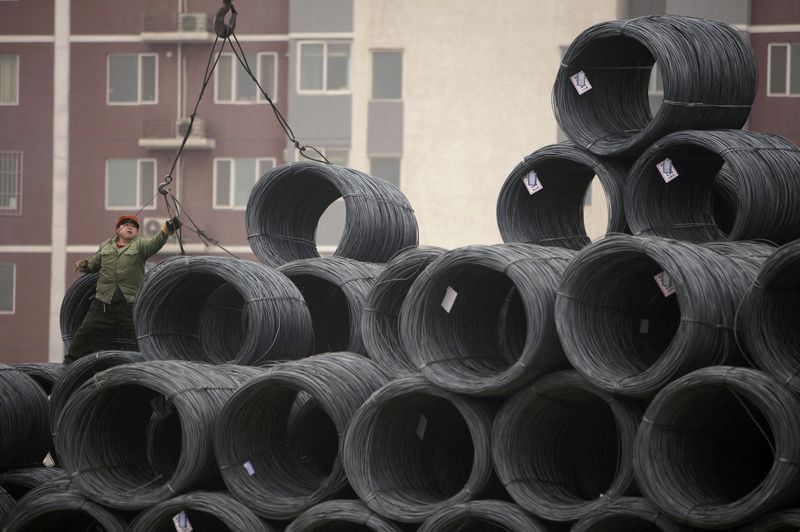China urges EU to ensure new carbon tax complies with WTO rules
2023.09.14 07:08

© Reuters. FILE PHOTO: A labourer works on coils of steel wire at a steel wholesale market in Beijing January 17, 2012. REUTERS/Soo Hoo Zheyang/File Photo
By Joe Cash
BEIJING (Reuters) – The European Union should ensure its plans to impose 20% to 35% tariffs on imports of high-carbon goods like steel, iron ore and cement comply with World Trade Organization rules, China said on Thursday, and not overstep agreed global green trade policies.
China is one of several countries to have aired concerns within the WTO over the EU’s Carbon Border Adjustment Mechanism(CBAM) designed to prevent European industry being undercut by cheaper goods from countries with weaker environmental rules.
“The EU-proposed carbon border adjustment mechanism has raised doubts among many WTO members,” said He Yadong, a commerce ministry spokesperson, while urging the EU to “avoid creating protectionist measures and green trade barriers.”
“Under the framework of the WTO, China is willing to work with all parties to promote multilateral discussion on green trade,” He added.
“Countries should adhere to multilateralism and the principle of common but differentiated responsibilities,” He said, “and work together to address climate change through broad cooperation.”
China has set some bold green targets, including President Xi Jinping’s pledge to make the country carbon neutral by 2060, but climate experts want Beijing to act faster and are questioning its position that as a developing country it should carry less of the load.
In April, the EU approved the world’s first plan to impose a levy on high-carbon imports from 2026.
EU trade chief Valdis Dombrovskis has said the European Commission has designed the plan carefully so that it was compatible with WTO rules, applying the same carbon price on imported goods as on domestic EU producers.
China’s exports to the EU of commodities set to be affected by the CBAM, such as aluminium, cement, steel, and fertilisers, are all big providers of export revenues to the country’s economy.








